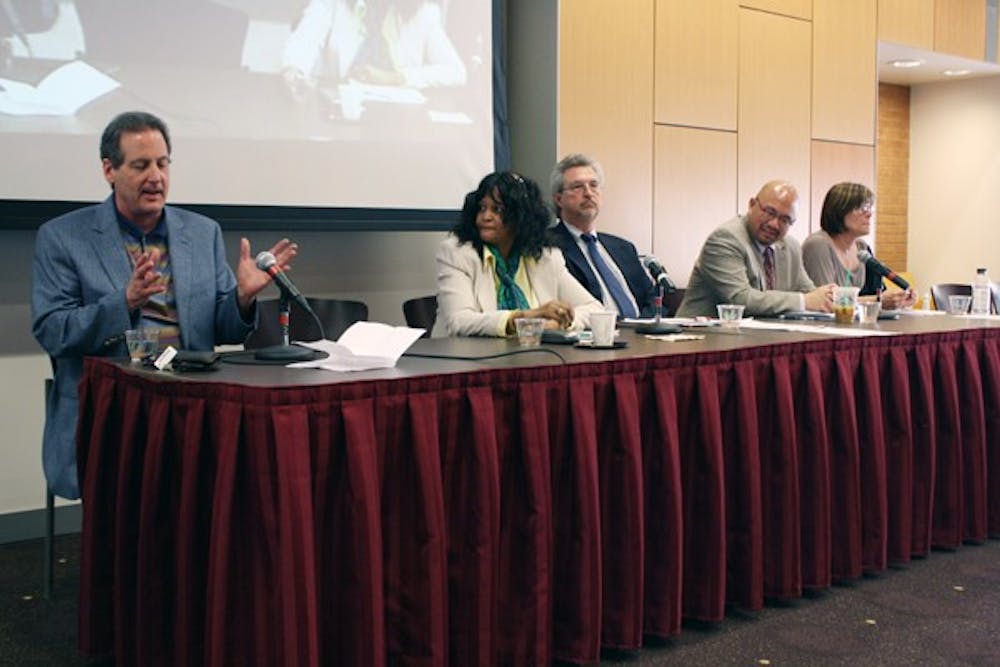A panel of faculty and staff discussed concerns regarding public speakers on campus Tuesday after receiving complaints from the campus community.
Campus Environment Team Chair and panel moderator Alonzo Jones said the discussion was organized to address concerns from students, faculty and staff about the controversial nature of some content presented by public speakers and posters.
Some of these have included religious presentations, anti-abortion displays and club demonstrations.
The Tempe campus hosted the discussion and broadcasted it through a live web feed to the other three campuses.
Law professor James Weinstein said public areas including Cady Mall are open to public discourse.
"People have a right guaranteed to express any idea, no matter how offensive," Weinstein said. "A preacher on Cady Mall does have a First Amendment right to condemn homosexuality as a sin just as an atheist has the right to condemn religion as mindless superstition."
He said "fighting words," when a speaker uses language intended to directly attack and target someone near them, are unprotected under the First Amendment.
Weinstein said though fighting words are not protected, inflammatory speech and symbols are.
"Contrary to popular understanding, there is no general exception for hate speech," Weinstein said. "It is protected as an argument. Hateful, racist ideas are protected in this country."
ASU’s Associate General Counsel Art Lee said the freedom of speech issue comes up regularly on university campuses and is a difficult issue to deal with.
"What we try to do here at ASU as a public institution of higher learning is try to act as a marketplace of ideas," Lee said.
He said the University's malls and sidewalks operate as "limited public forums," where speech can be neutrally regulated.
ASU cannot, for example, ban Christian speakers while allowing atheist speakers in these public forums.
Journalism professor Joseph Russomanno said anti-homosexual sentiments and other controversial ideas promoted by "mall preachers" are protected by the First Amendment as determined by a U.S. Supreme Court case dealing with the Westboro Baptist Church.
"What (the Westboro Baptist Church) began to do years ago was to go to various sites and picket, holding signs that expressed beliefs of one kind or another," Russomanno said. "One of their picket sites in 2006 was at the funeral of a 20-year-old Marine who was killed in Iraq."
He said the father of the Marine sued the picketers for intentional infliction of emotional distress and lost.
Russomanno said there is nothing to fear about others' ideas and words.
"I think we can learn to be tolerant and to discuss issues in a civil way and at the same time still protect all those who want to speak," he said.
Souad Ali, professor of Arabic literature and Middle East and Islamic studies, said the major question at hand was the difference between a public forum on the macro scale of a nation and a public forum on the micro scale of a university.
"I believe the ethics of a university campus is an extension of classroom ethics," Ali said.
Theater and film professor Pamela Sterling, theater senior Teshai Carter, English literature junior Isaac Kolding, and theater junior Natalie Mellis concluded the panel by demonstrating how students should or shouldn’t interact with “mall preachers.”
Reach the reporter at dgrobmei@asu.edu
Follow us on Twitter or like us on Facebook. Click here to subscribe to the daily State Press email newsletter.





